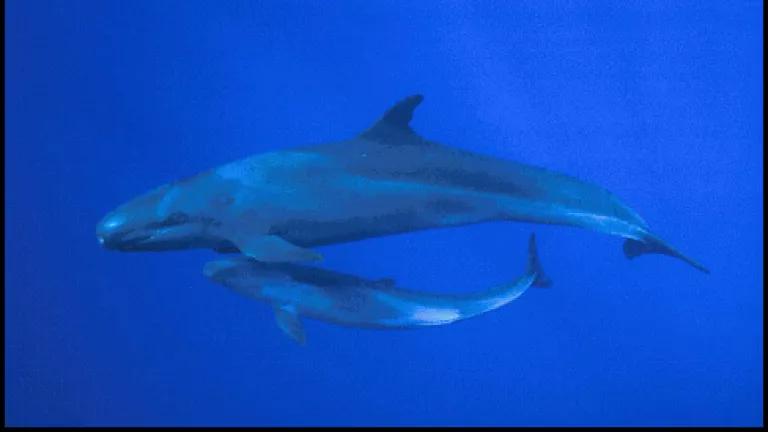
In a world where marketing is everything, the false killer whale (or pseudorca) might want to consider a name change. “Real” killer whales had a hard enough time with it, until Shamu and Willy came along, and at least they weren’t “false” on top of everything else. These rare, elusive, and graceful animals, who are really a very large kind of dolphin, are normally found in the open ocean, where they prey on fish and squid. But Hawaii is home to a special population of false killer whales--who are not pelagic, but live close to land; who are not migratory, but permanent island residents. In fact, these genetically distinct whales are the only known long-term, island-associated false killer whales in the world.
Sadly, they are not doing well. Some abundance estimates put the population at only about 123 individuals, and ten years of surveys have shown a dramatic decline in numbers. Among the biggest threats to Hawaii’s false killer whales are fishing operations. Both long-line and short-line fisheries (the later unregulated by the federal government) can kill and injure pseudorcas, and there are disturbing reports of some whales being deliberately shot by fishermen, who may blame them for feeding off their catch. Fishing may be impacting false killer whale in other ways, most obviously by reducing the availability of their main prey (false killer whales happen to eat the same fish we do, such as yellowfin tuna and mahi mahi). Contamination with toxic chemicals, ocean acidification, and ocean noise pollution may all be playing a role as well.
Clearly, this is a population in need of protection. Like so many other species, its best hope may be the protections offered by the Endangered Species Act. Today NRDC filed a petition under the federal Endangered Species Act to protect the insular population of Hawaiian false killer whale as an endangered species. If we are successful, the federal protections will be extended to this unusual and important population. It needs them.

